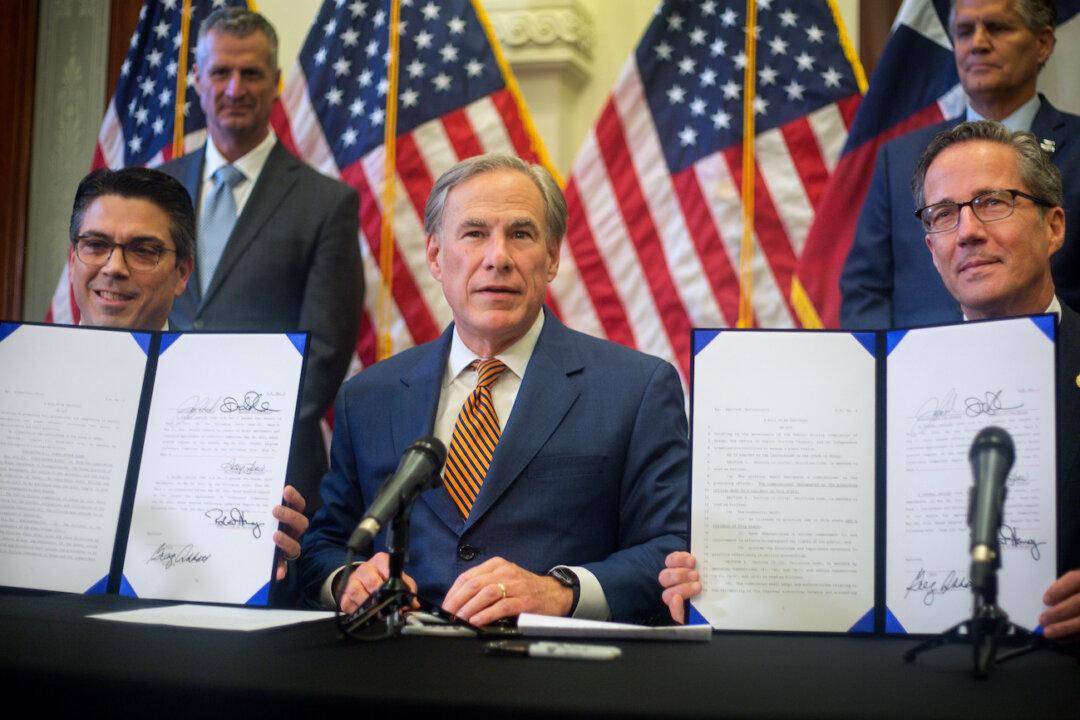Texas Gov. Greg Abbott signed two bills into law on June 8 to weatherize and improve the reliability of the state’s power grid and reform the Electric Reliability Council of Texas (ERCOT), the organization that oversees the grid, after a brutal February winter storm left millions without power and killed dozens of people.
“During the winter storm, too many Texans were left without heat or power for days on end, and I immediately made reforming ERCOT and weatherizing the power system emergency items,“ the Republican governor said in a statement. ”We promised not to leave session until we fixed these problems, and I am proud to say that we kept that promise. These laws will improve the reliability of the electric grid and help ensure these problems never happen again.”




